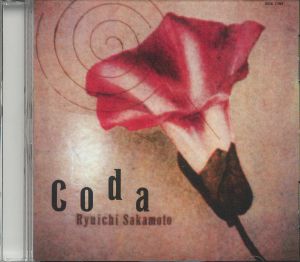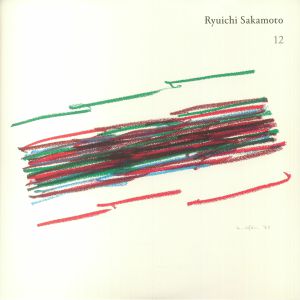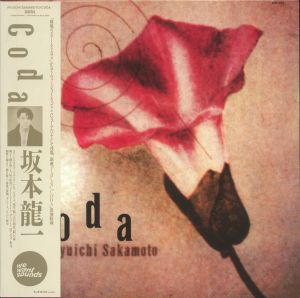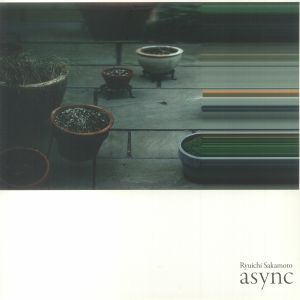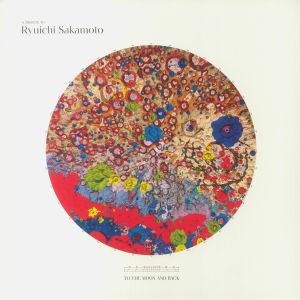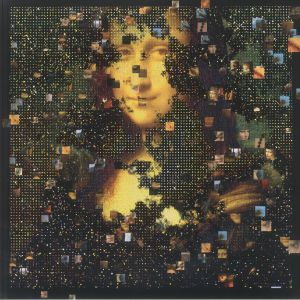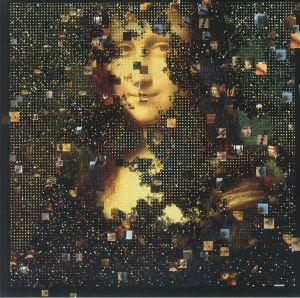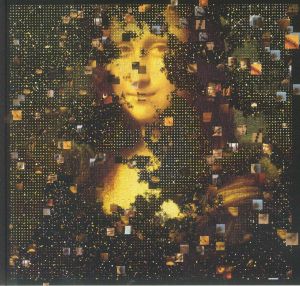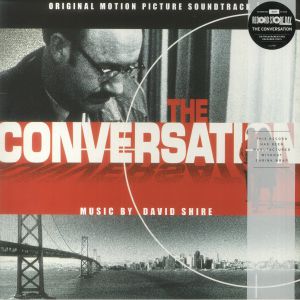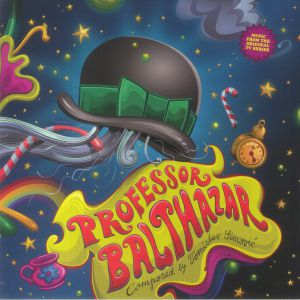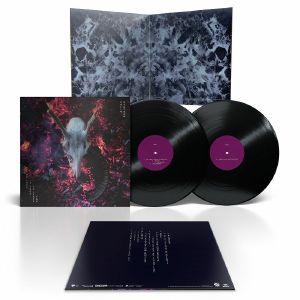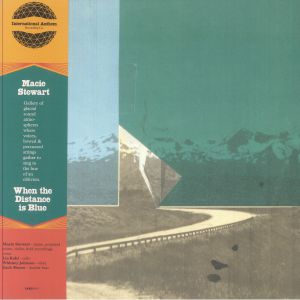Filter
Genre
在庫状況
レーベル
Featured
リリースタイトル
値段
Back catalogue: Classical
Juno's full catalogue of Classical
シングル
Review: In an unprecedented collaboration, Formula 1 star Charles Leclerc and world-renowned pianist Sofiane Pamart present Dreamers, a unique piano composition project. An unusual project to say the least, we have to admit that the idea is there: co-composed between the boy racer and the pianoforte prodigy, Leclerc and Pamart jointly describe their release as a "tribute to the journey and not just the destination", and a composition that "captures the ongoing pursuit of excellence and the never-ending evolution of dreams". It certainly is dreamy, with the likes of 'Focus' and 'The Dream Continues' wringing out the stargazing propensities of all those at home and mixing it with the raw power of the figurative racecar engine, inspiring a longing for greatness on the level embodied in these two.
… Read more in stock $27.39
Ramybe/Autoportretas (grey marbled vinyl 12" in spot-varnished sleeve)
Cat: CON 939LP. Rel: 08 Jan 24
Review: The state51 Conspiracy label comes very much correct early on in the New Year with this two-track grey marbled vinyl 12" in a fancy spot-varnished sleeve. It takes the form of two fresh Santaka reworks of original compositions by Rytis Mazulis and avant-garde choir Melos Collective which were first released back in 2020. Santaka, which means "confluence" in Lithuanian, is the coming together of DJ and producer Manfredas and drummer and producer Marijus Aleksa and here they layer up disembodied vocals and dark jazz melodies on 'Ramybe' and then 'Autoportretas' is a textural ambient exploration packed with fascinating sound designs.
… Read more in stock $27.39
アルバム
Quiet In A World Full Of Noise (LP + poster)
Cat: MRG 864LP. Rel: 03 Oct 24
Review: Dawn Richard and Spencer Zahn reunite for new album Quiet in a World Full of Noise, which is driven by their shared curiosity and desire to defy genre conventions. Following their 2022 collaboration Pigments, this new work together blends atmospheric, orchestral soundscapes with soulful jazz and intimate, confessional vocals and the result is a raw and exposed performance from Richard who delivers stark lyricism that feels both personal and profound. The album redefines the worlds of progressive, avant-garde r&b and jazz with an ethereal yet grounded approach, heavenly melodies and plenty of wide open space in which to luxuriate. By merging the familiar with the unexpected, this fine pair create a sound that makes a lasting impression.
… Read more in stock $31.81
Review: The film Merry Christmas Mr. Lawrence, a worldwide sensation upon its release in 1983, showcased Sakamoto's emerging talent as a composer - alongside his acting role - and the soundtrack became instantly popular, establishing Sakamoto as a global music icon. These solo piano versions of it were recorded at Onkyo Haus in Tokyo and initially released as part of the Japanese cassette book project Avec Piano, and now, not before town, are finally getting their first full international release.
… Read more in stock $19.36
Review: Ryuichi Sakamoto is making a very welcome return here with his first solo album since 2017's async. Milan Records are releasing 12 in January to coincide with the venerated Japanese composer's 71st birthday, and the timing is poignant given the album draws from musical sketches created while Sakamoto battled for two and a half years with cancer. Sakamoto himself describes reaching for his synths as a kind of therapeutic response to a big operation, and so the music carries an added depth of personal experience from one of the most profound ordeals a person can go through.
… Read more in stock $33.75
Coda (remastered) (LP + booklet with obi-strip)
Cat: WWSLP 92. Rel: 10 Oct 24
Review: Wewantsounds has put together a re-release of the late, great Ryuichi Sakamoto's classic album Coda, which was originally issued in his native Japan in 1983. This album is a solo piano rendition of the seminal Merry Christmas Mr. Lawrence soundtrack and has never been available outside Japan until now. It finds legendary composer Sakamoto perform acoustic piano interpretations of his iconic themes including the classic title track and 'Germination,' which later featured in the Call Me By Your Name soundtrack. Remastered by Seigen Ono's Saidera Mastering studio in Tokyo, this reissue includes the original artwork and a four page insert with new liner notes by Andy Beta.
… Read more in stock $34.03
Review: The late great Ryuichji Salamoto has left us with a vast body of work to enjoy until the end of time and amongst the many highlights of his ground breaking catalogue was this album, Async. It was Ryuichi's first solo album in eight years at time of release in 2017 and fund him taking inspiration from "everyday objects, sculpture, and nature." Sakamoto said this was an album about making the sounds he most wanted to listen to and was made with the traditional Japanese idea in mind that, "less-is-more." It is full of field recordings and was recorded in New York City with a deep selection of unique acoustic and electric sounds.
… Read more in stock $27.39
Better Days Of (gatefold 2xLP with obi-strip)
Cat: HMJY 219/20. Rel: 18 Feb 25
Review: You had us at Sakamoto. Or rather you had us at "excerpts from Ryuichi Sakamoto's time working under Nippon Colombia's label, Better Days. First released in 1992, this 12-track compilation runs from tracks that appeared on the Japanese synth legend's debut album, Thousand Knives, first released in 1978, through to songs written with the iconic session group KYLYN, featuring celebrated guitar great Kazumi Watanabe. Ever the auteur, even if you didn't know this was Sakamoto in proper landmark mode, there's no chance the sounds here could really be confused for anyone or anything else. It's mature and intelligent, yet strangely - and typically - fun, childlike and a little cartoonish, sharing as much in common with experimental electronica that was emerging during the 1970s and 1980s as video game scores from the 1990s.
… Read more in stock $56.15
Ryuichi SAKAMOTO / VARIOUS
A Tribute To Ryuichi Sakamoto: To The Moon & Back (gatefold 2xLP)
Cat: 196587 37981. Rel: 01 Dec 22
Review: Released to coincide with Japanese musical Goliath Ryuichi Sakamoto's 70th birthday, To the Moon & Back was almost inevitable. Even without worrying reports about the maestro's health, there's no way anyone can have such a significant impact on global music for so long and not have people wanting to pay tribute upon reaching septuagenarian years.
And what a tribute it is. Taking elements from a huge back catalogue that stretches back to the mid-1970s, contemporary greats including Thundercat, Alva Noto, Hildur Guonadottir, The Cinematic Orchestra, and David Sylvian offer new versions and remixes of the master's stuff, with each track here chosen by Sakamoto, which is about as significant a seal of approval as you could hope for. Like the man himself, it's widely varied, consistently innovative and just really, really good.
… Read moreAnd what a tribute it is. Taking elements from a huge back catalogue that stretches back to the mid-1970s, contemporary greats including Thundercat, Alva Noto, Hildur Guonadottir, The Cinematic Orchestra, and David Sylvian offer new versions and remixes of the master's stuff, with each track here chosen by Sakamoto, which is about as significant a seal of approval as you could hope for. Like the man himself, it's widely varied, consistently innovative and just really, really good.
in stock $29.05
Review: Seoul-based duo Salamanda clearly struck upon a persuasive formula when they first cropped up on Good Morning Tapes in 2020. Somewhere between delicate ambient and a modern kind of deep house, their music carries a tenderness which feels absolutely at home on Facta and K-Lone's eminently soothing stable, Wisdom Teeth. In Parallel builds on the sound laid out on previous records for Human Pitch and Metron by presenting a more focused duo seemingly conscious of their rapidly grown audience and considering how to best build upon their tender sound without losing the charm. Threading subtle pop elements into their gossamer-light constructions, this is a rich, satisfying listen from a duo it's so easy to love.
… Read more in stock $21.30
Da Vinci Genius (180 gram vinyl 2xLP + insert)
Cat: ALNLP 70. Rel: 28 Nov 24
Review: Dance music legend Sasha makes a grand return to Night Time Stories with his new project, Da Vinci Genius. Building on the success of his 2016 album Scene Delete, this latest work takes another step away from the dancefloor and into the realm of cinematic composition. Premiered in Berlin in 2021 and later showcased in Amsterdam, Da Vinci Genius draws on the legacy of Leonardo Da Vinci, blending classical elements with Sasha's signature electronic sound. Collaborating with key contributors Dennis White, Dave Gardner and Barry Jamieson, Sasha crafts an immersive experience that balances timeless classical music with modern electronic textures.
… Read more in stock $27.94
Da Vinci Genius: The Score (limited numbered 180 gram gold vinyl 2xLP + insert + MP3 download code)
Cat: ALNLP 70X. Rel: 28 Nov 24
Review: With Da Vinci Genius, Sasha unveils a stunning evolution of his artistry that transports listeners far beyond the club. This project, inspired by the timeless genius of Leonardo Da Vinci, reflects a thoughtful exploration of sound that balances classical influences with Sasha's distinctive electronic pulse. Having debuted in Berlin before captivating audiences in Amsterdam, this album embraces orchestral depth while maintaining a modern edge. Collaborators Dennis White, Dave Gardner and Barry Jamieson elevate the experience, crafting an expansive soundscape that's rich and emotive, offering a fresh perspective on Sasha's innovative approach to music.
… Read more in stock $31.54
Review: Sasha's latest album was initially created to soundtrack Da Vinci Genius, a unique, immersive, multi-media exhibition celebrating the life and work of the inventor, artist and all-round Renaissance man Leonardo Da Vinci. Crafted in cahoots with a string of contributors to his popular Scene Delete set, the score (and subsequently this album) cannily combines neo-classical music (inspired by both vintage and more contemporary composers), the sweeping grandiosity of movie soundtracks, bubbly electronica, colourful ambient soundscapes, occasional nods to 15th century choral music and Sasha's usual emotive musical motifs. As the set progresses, it eases closer to the dancefloor sound the veteran DJ/producer is most famous for - which will delight his legion of fans - without ever fully committing. This is, after all, an immersive, eyes-closed listening experience first and foremost.
… Read more in stock $13.00
Cowboy Bebop: The Real Folk Blues Legends (Soundtrack) (dark blue marbled vinyl 2xLP)
Cat: 196588 70771. Rel: 09 Feb 24
Review: Introducing Cowboy Bebop: The Real Folk Blues Legends, a vinyl masterpiece with captivating designs by Toshiaki Uesugi, celebrated for his work for the Cowboy Bebop franchise. Thw LP, carefully supervised by the legendary Yoko Kanno, compiles tracks from the whole Cowboy Bebop discography including 'Blue', 'No Disc' and 'Knocking on Heaven's Door', and not least the iconic 'The Real Folk Blues'. This release brings to vinyl for the first time many such classics, delivering to fans a unique sonic experience not only highlighting the sonic world of Cowboy Bebop, but the opportunity to share in the legacy of one of the most successful anime series of all time. This vinyl set features two deluxe LP discs on 140g dark blue marbled 12" vinyl. It also includes an insert print with tracklists, credits, liner notes and interviews with Yoko Kanno.
… Read more in stock $35.40
Review: Singer, songwriter and author Ali Sethi had been entranced by Nicolas Jaar's music long before they began collaborating. He'd absorbed the sounds over a number of years, listening casually and taking in their subtleties in bars and rooftop parties across Lahore and London. "It felt familiar to me, that sense of adventure you have when you hear his music, like a tale that teases you and plays with your expectations as it unfolds," says Sethi. "In that sense it resembled the leisurely improvised ghazals and qawwalis I grew up hearing in Pakistan." When the two were finally introduced by Indian visual artist Somnath Bhatt, a regular Jaar collaborator who also handled the album's artwork, Sethi was well prepared. He began to sketch out voice notes using loops snipped from Jaar's acclaimed 2020 album 'Telas', improvising vocalizations and seductive Urdu poems over Jaar's weightless, time-bending productions.
… Read more in stock $28.49
Review: Composer and multi-instrumentalist Shabaka Hutchings releases his sophomore LP Perceive Its Beauty, Acknowledge Its Grace', building on his increasingly impressive career working with Andre 3000, Sun Ra Arkestra and heading multiple bands - not least the, now dissolved, The Comet is Coming. The album marks the king's return to music, following his abandonment of the saxophone in 2023. Here he returns to his original instrumental calling, the clarinet, but a wide array of wind is on offer. The first single, the opening track 'End of Innocence', is a succinct clarinet and piano marriage. The reverberation of the keys softly emanates behind the masterfully controlled clarinet lead, with perfectly placed percussion sprinkled throughout. It's introspective, serene and understated - a supremely narrative feel that only instrumental jazz can give off.
… Read morePlayed by: Juno Recommends Jazz
in stock $31.81
Review: Shabaka Hutchings' Perceive Its Beauty is a profound and meditative musical journey that celebrates the richness and grace of African culture. Through a diverse ensemble of renowned musicians, Hutchings invites us to immerse ourselves in a sonic landscape that evokes the beauty and bounty of the Motherland. The album's meditative quality stems from the restraint and collective nature of its creation. The instruments seem to float effortlessly, creating a sonic cloud that carries echoes of Afro-Asian music and the tranquil sounds of nature. Yet, within this understated atmosphere, individual brilliance shines through. The artistry of Jason Moran on the piano and the ethereal voices of Moses Sumney and Eska add layers of nuance and emotional depth. In an era often marked by division and disharmony, Perceive Its Beauty offers a refuge of unity and peace. It invites us to transcend superficial boundaries and embrace the beauty and grace that resides within and around us.
… Read morePlayed by: Juno Recommends Jazz
in stock $10.66
In The Cell Of Dreams (gatefold LP)
Cat: 7K 047LP. Rel: 29 Sep 23
Review: Shackleton and Waclaw Zimpel's first album Primal Forms was a masterful collaboration which arrived on Cosmo Rhythmatic in 2020. The pair clearly found fruit in their crossover as they return for a second instalment, this time on 7K! and with an expanded approach thanks to the addition of Siddhartha Belmannu, a strikingly talented young singer in the field of Indian classical music. The over-arching intention of the artists was to make a joyous album about the wonder of life and living, but of course this isn't a one-dimensional happy-clappy record. Rather, it's a meditative exercise dealing in fascinating microtonality and mesmerising harmonic interplay with the power to have a profound, uncanny effect on the listener.
… Read morePlayed by: Alexis Le-Tan
in stock $24.90
Review: Takeshi Shibuya's Famous Composers" album, which is now available on long player for the first time, features two stunning solo piano works recorded on June 4, 2007, at Hanzomon TFM Hall. Using a 24-bit DVD system with direct 2-track recording, the album has some seriously exceptional sound quality that captures the rich hall echoes and Shibuya's refined phrasing in an elegant style. The album is divided into two sections: one showcasing beautiful melodies and the other celebrating renowned composers of jazz standards. Highlights include the austere 'Come Sandy' and 'Skating in Central Park,' among other gems. This reissue presents Shibuya's jazz-inspired artistry with a luscious and polished brilliance.
… Read more in stock $46.19
River The Timbre Of Guitar No 2 Rei Harakami (gatefold transparent blue vinyl LP + insert + MP3 download code)
Cat: MMDS 25002LP. Rel: 30 Apr 25
Review: River: The Timbre of Guitar #2 Rei Harakami is a luminous tribute to the late Japanese electronic composer Rei Harakami by Ayane Shino. By reimagining his ambient soundscapes through classical guitar, Shino delicately transforms 10 of his compositions into serene, intricate acoustic pieces. Her interpretations capture the warmth and floating quality of Harakami's originals but offer a fresh, introspective perspective. Her masterful ability to bridge electronic and classical genres leaves you in awe as you float amongst the mellifluous melodies and expressive guitar playing, with the sound of squeaking fingers on fret boards adding a sense of character that adds to its allure. A magical listen.
… Read more in stock $28.49
The Conversation (Soundtrack) (Record Store Day RSD 2023) (limited numbered gatefold red vinyl LP)
Cat: SILLP 1661. Rel: 29 Apr 23
Review: David Shire has one hell of a back catalogue. Active within music since the 1960s, and specifically theatre and film soundtracks in the 1970s, while many of the biggest names behind movie scores have a tendency to explore the same avenues, and therefore wind up creating tunes for relatively similar flicks, in this case that's not really true. The Taking of Pelham One Two Three (the original, of course), All The President's Men, and parts of Saturday Night Fever give some idea as to the breadth of his mastery.
The Conversation slips right in there in terms of period and genre, but is, of course, a very different classic to a movie about a New York subway train getting hijacked or social tensions in Brooklyn at the height of the disco era. While largely focused on piano solos, we also get late night dance floor jazz, tense drone, and moody avant-garde, just in case the on-screen action wasn't brooding enough already.
… Read moreThe Conversation slips right in there in terms of period and genre, but is, of course, a very different classic to a movie about a New York subway train getting hijacked or social tensions in Brooklyn at the height of the disco era. While largely focused on piano solos, we also get late night dance floor jazz, tense drone, and moody avant-garde, just in case the on-screen action wasn't brooding enough already.
in stock $28.49
Professor Balthazar (Soundtrack) (gatefold LP)
Cat: FOX 010LP. Rel: 25 Sep 23
Review: If you're unfamiliar with Yugoslavia-era Croatian animated children's entertainment than where have you been? And, please, allow us some introductions. Produced for 11 years, between 1967 and 1978, Professor Balthazar was a kids show about a benevolent genius scientist (the titular star) who helps those around him overcome various problems, often through the use of invention, using a magical machine to come up with innovative designs to solve any issue. While there is certainly subtext to read into - TV has always been a bastion of propaganda, not least behind the Iron Curtain of yore - trying to pinpoint the location or origin here isn't easy, if you don't already know. No character speaks a discernible language, making this resolutely universal storytelling. Similarly, the soundtrack, by Balkan master Tomislav Simovic, is relentlessly shapeshifting and expressive, and impossible not to fall in love with, no matter where you grew up.
… Read more in stock $33.75
The Zagreb School Of Animated Film: 1961-1982 (Soundtrack) (gatefold 2xLP)
Cat: FOX 011LP. Rel: 25 Sep 23
Review: Tomislav Simovic was among the most significant musical masters to emerge in post-World War II Yugoslavia. The Croatian artist was a member of several jazz bands over the years, is considered a pioneer of southern European electronic music, a highly respected musical theorist, commentator, and all-round visionary. During his lifetime, he would score 300 films, many of which are lost to the sands of time, and those that did survived, or were recreated by new artists, are considered examples of soundtrack as art. Few answer that call better than this previously unreleased collection of 18 short animated films from the Zagreb school, which positioned itself as an artistic institution concerned with presenting philosophical world views and changing the course of animated history. Simovic's work, even without the visuals, conveys this brilliantly, with a mixture of whimsy, comedy, contemporary songwriting, and grand arrangements.
… Read more in stock $40.39
Cat: EM 1096LP2. Rel: 26 Nov 24
Review: Mustapha Skandrani is a luminary of Algerian music who crafted a unique fusion of Arabo-Andalusian and European styles. His 1965 solo piano album Istikhbars and Improvisations was recorded in Paris and reimagines traditional Algerian istikhbars, which are vocal pieces rooted in Islamic Arabo-Andalusian culture, on a quintessentially European piano. While some purists criticised this approach, Skandrani highlighted the shared European elements within Arabo-Andalusian traditions and demonstrated the Mediterranean as a bridge, not a divide. Alternating between modal istikhbars and piano improvisations, his precise touch evokes comparisons to Bach's Goldberg Variations while retaining strong Arabic/Maghreb influences.
… Read more in stock $25.44
Sylva (Remixed & Remastered) (gatefold 180 gram vinyl 2xLP)
Cat: GNDP 5241. Rel: 20 Jun 24
Review: Snarky Puppy are much celebrated five-time Grammy Award winners whose ever-popular album Sylva no gets a special reissue. This re-release comes on nice heavyweight double vinyl and as well as including the six original cuts, it also takes in two alternate takes of 'The Curtain' and 'The Clearing.' Although it was originally released by Impulse! Records, this new version comes via GroundUP Music who have cut it from the original masters. It makes for a superb revisiting of a classic jazz album with the added bonus of a couple of different perspectives.
… Read more in stock $34.03
For Anyone That Knows You (LP + MP3 download code)
Cat: UW 41LP. Rel: 20 Apr 23
Review: How far can a single artist take a time-honoured musical trope: the piano solo? Josiah Steinbrick attempts to answer the question not in words, but in ivories, with his newest album For Anyone That Knows You, a bewitching hybrid compositional project that puts the chordophonal instrument centre-stage. Allegedly, the album was recorded not for smoothness or posterity but to emphasise the piano as an object, as well as the person playing it and the moment in which it resounds. On top of that, its ten original compositions - cathartic and ecstatic - are backed up by covers of songs from Peruvian, Creole, and Malian traditions, as well as the much-sought saxophone backings of one Sam Gendel.
… Read morePlayed by: Stunty
in stock $25.73
Review: The vinyl edition of the erst CD album The Love It Took Took Leave You by Colin Stetson is now upon us. The esteemed saxophonist and multi-reedist marks his first full-length solo recording since 2017 here, delivering an album drawn on the experience of love lost, and yet zest for life regained. Written some years before its release - yet always lurking in the background, waiting for recognition apropos the right moment - The Love It Took To Leave You was recorded over the course of a week in early 2023 at The Darling Foundry, a 144-year-old former metalworks facility in Montreal, now transformed into a contemporary art complex, with a voluminous main room that still maintains its raw architecture of brick, concrete and steel. With an arsenal of saxes and clarinets, Stetson builds a heartbroken yet integral tapestry of emotions, his saxophonic welt-geist riffing upon whirling, looping maelstroms of breath, chamber reverb and unerring focus.
… Read more in stock $33.18
Review: International Anthem continues to serve up inspired debuts from some of the more intriguing members of Chicago's jazz and experimental music communities. The latest comes from multi-instrumentalist, composer and improviser Macie Stewart, who has delivered what's being dubbed "a companion piece for moving through life". At the heart of the album is Stewart's use of both piano and 'prepared piano' (a technique where various items such as coins and pieces of felt are attached to the instrument's strings). These picturesque and occasionally melancholic musical motifs come wrapped in atmospheric field recordings and sensitive string quartet arrangements. The results are rarely less than memorable, mesmerising and magnificent.
… Read more in stock $13.84
When The Distance Is Blue (LP + insert with obi-strip)
Cat: IARC 93LP. Rel: 20 Mar 25
Review: Macie Stewart's debut on International Anthem finds the multi-instrumentalist and composer, in her own words, writing a "love letter to the moments we spend in-between," all while returning to her first instrument, the piano. Through prepared piano, field recordings and string quartets, she creates a cinematic, transient world that reflects her musical journey. Featuring collaborations with artists like Lia Kohl and Whitney Johnson, the album weaves a sound collage of memory and movement that is inspired by her travels. When the Distance is Blue muses on themes of change, longing and the beauty found in the unknown.
… Read more in stock $23.22

 USD
USD








